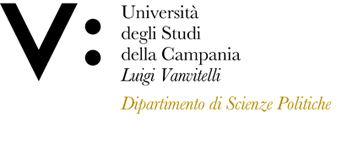Anna MAROTTA
Insegnamento di COMPARATIVE LAW AND TECHNOLOGY
Corso di laurea magistrale in RELAZIONI E ORGANIZZAZIONI INTERNAZIONALI
SSD: IUS/02
CFU: 6,00
ORE PER UNITÀ DIDATTICA: 36,00
Periodo di Erogazione: Secondo Semestre
Italiano
| Contenuti | 1) Introduzione al diritto comparato attraverso lo studio del metodo, degli obiettivi, della storia, delle classificazioni, dei principali sistemi giuridici e delle relative caratteristiche |
| Testi di riferimento | E. L. Sidorenko, P. von Arx, Transformation of Law in the Context of Digitalisation: Defining the Correct Priorities, in Digital law Journal, Vol. 1, N. 1, 2020, pp. 24-38. |
| Obiettivi formativi | Il corso ha per oggetto l’analisi comparativa delle interconnessioni tra diritto e tecnologia. Integrando la riflessione giuridica nell’apprendimento dell’evoluzione tecnologica, esso ha come scopo quello di intercettare le sfide che la società attuale pone al diritto, così da preparare gli studenti a rispondere prontamente e correttamente alle esigenze connesse ad un mercato del lavoro fortemente e progressivamente segnato dall’utilizzo della tecnologia. |
| Prerequisiti | È consigliabile la lettura di un manuale di diritto comparato. |
| Metodologie didattiche | Lezioni frontali (60% delle ore previse); esercitazioni (20%), attività seminariali, lavori di gruppo (circa 20%). |
| Metodi di valutazione | Ciascuno studente può optare per l’esame scritto o l’esame orale prenotandosi ai corrispondenti appelli. In entrambi i casi, vengono proposti quesiti attinenti a profili generali e specifici riguardanti i “Contenuti” sopra elencati. |
| Altre informazioni | Agli studenti frequentanti (presenza pari o superiore al 70% delle lezioni) sarà comunicato il programma per lo svolgimento dell’esame. |
| Programma del corso | Il corso affronta i seguenti argomenti: |
English
| Contents | 1) Introduction to Comparative law: method, aims, history, classifications and description of the main legal systems around the world |
| Textbook and course materials | E. L. Sidorenko, P. von Arx, Transformation of Law in the Context of Digitalisation: Defining the Correct Priorities, in Digital law Journal, Vol. 1, N. 1, 2020, pp. 24-38. |
| Course objectives | This course comparatively analyses the existing interconnections between law and technology. The adoption of legal lenses for the observation of the technological innovations aims to intercept challenges posed to law by the current society, in order to prepare students to promptly and properly meet the needs connected with a labour market which is strongly and increasingly marked by the use of technologies. |
| Prerequisites | It is recommended the preliminary study of a handbook of comparative law. |
| Teaching methods | Face-to-face lectures (60% of the total available hours), exercises (20%), seminaries, group work (about 20%). |
| Evaluation methods | Each student can opt for either a written exam or for an oral exam by registering regularly at the exam sessions. In both cases, students will be asked questions concerning the general and specific profiles illustrated in the section “Content”. |
| Other information | Attending students (attendance equal to, or higher than, 70% of the lectures) will be informed of the exam program. |
| Course Syllabus | The course will address the following topics: |








